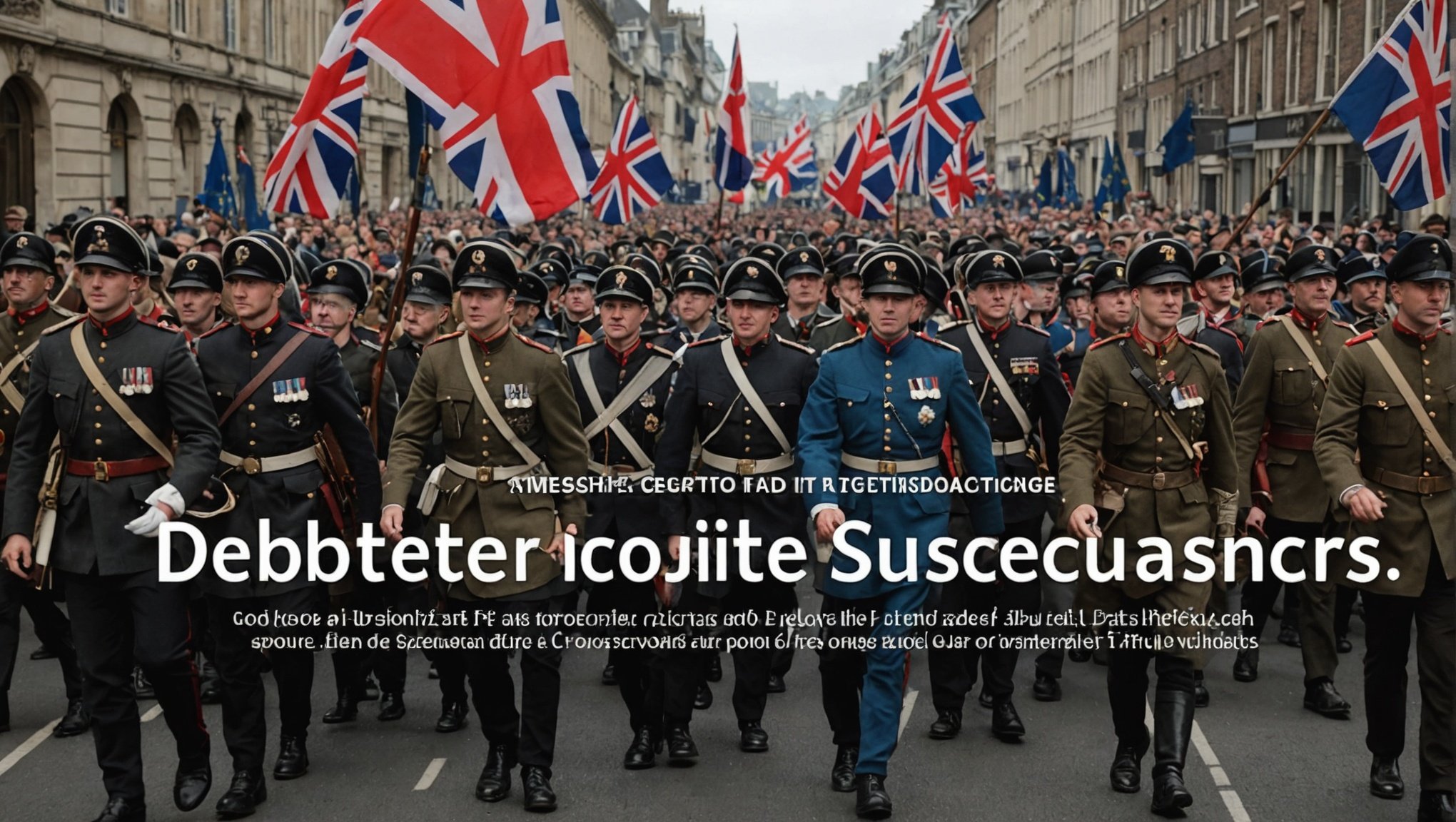Social media offers UK fighters an unprecedented platform to elevate their careers. With the right strategies, athletes can connect with fans, attract sponsorships, and showcase their skills. Effective engagement on platforms like Instagram and Twitter can lead not only to a loyal following but also real opportunities in the competitive sports landscape. Explore how leveraging these channels can unlock new pathways to success and enhance your brand as a fighter.
Understanding the Importance of Social Media for Fighters
In today's digital age, social media has become an indispensable tool for fighters aiming to advance their careers. It plays a pivotal role in modern sports, transforming how athletes engage with fans, sponsors, and the broader community. For fighters, a robust social media presence is not just about posting updates but is crucial for career growth and branding.
In the same genre : Top Carbohydrate Loading Strategies for UK Fighters Before Tournaments: Fuel Your Success!
Social media platforms offer fighters an opportunity to showcase their personality, training routines, and achievements, which can significantly enhance their visibility and marketability. A strong online presence allows fighters to build a personal brand, attracting sponsorships and partnerships that can lead to financial gains and career opportunities. Fighters who effectively leverage social media can connect with a global audience, expanding their fan base beyond local or national boundaries.
Popular platforms among UK fighters include Instagram, Twitter, and Facebook, each offering unique features that cater to different aspects of a fighter's career. Instagram is ideal for visual storytelling, allowing fighters to share photos and videos of their training and fights. Twitter provides a platform for real-time interaction and engagement with fans and other fighters, while Facebook offers a more comprehensive approach to building a community and sharing detailed updates.
Also to see : Enhancing Fencing Excellence: The Role of Biomechanical Analysis in Advancing Technique for UK Athletes
In conclusion, social media is not just a tool but a strategic asset for fighters, essential for career advancement and establishing a unique brand identity in the competitive world of sports.
Building a Personal Brand on Social Media
Creating a personal brand is essential for fighters looking to establish a strong online identity. It begins with defining your brand identity, which involves understanding what sets you apart from other fighters. This could be your fighting style, personality, or unique story. Once you've identified these elements, it's crucial to craft a consistent message that resonates across various platforms.
Defining Your Brand Identity
Your brand identity should reflect who you are both in and out of the ring. Consider what aspects of your journey or character you want to highlight. Are you known for your resilience, technical skills, or perhaps your community involvement? These attributes will form the core of your fighter image and should be communicated clearly to your audience.
Consistent Messaging Across Platforms
Consistency is key in personal branding. Whether you're posting on Instagram, tweeting, or updating your Facebook page, your messages should align with your defined brand identity. This means using similar language, tone, and visuals across all platforms to reinforce your fighter image. Consistent messaging helps build trust and recognition among your followers, making your brand more memorable.
Case Studies of Successful UK Fighters
Several UK fighters have successfully built strong personal brands through social media. For instance, fighters like Anthony Joshua have leveraged their online presence to showcase not just their fights, but also their training regimes, personal philosophies, and charitable activities. By maintaining a consistent and engaging online identity, these fighters have enhanced their marketability and expanded their fan base globally.
Platform-Specific Strategies
Understanding how to optimize each social media platform is crucial for fighters looking to enhance their online presence. Different platforms offer unique opportunities and require tailored approaches to maximize their potential.
Instagram Best Practices
Visual storytelling is a powerful tool on Instagram, allowing fighters to share compelling narratives through photos and videos. Utilizing features like reels and IGTV can significantly boost engagement, offering followers a glimpse into training routines and behind-the-scenes moments. To increase visibility, fighters should strategically use hashtags and tagging, connecting with wider audiences and potential sponsors.
Engaging on Twitter
Twitter is ideal for real-time interaction. Fighters can provide real-time updates during events and training sessions, keeping fans engaged and informed. Building conversations with fans and followers through replies and retweets fosters a sense of community. Additionally, leveraging trending topics and hashtags can amplify a fighter's reach, tapping into broader discussions and attracting new followers.
Other Platforms to Consider
While Instagram and Twitter are popular, fighters should also explore platforms like TikTok and YouTube. TikTok offers creative avenues for showcasing personality and skills, while YouTube allows for more in-depth content, such as tutorials and fight analyses. Building a community on Facebook remains effective for sharing detailed updates and engaging with a loyal fan base. Exploring niche platforms can also connect fighters with specialized audiences, further expanding their reach.
Content Creation Tips for Fighters
Creating a robust content strategy is essential for fighters to connect with their audience and build a loyal fan base. Understanding the types of content that resonate with fans is the first step in crafting engaging content. Fans are often drawn to a mix of personal insights and professional updates. Sharing training routines, fight highlights, and personal milestones can create a well-rounded image that fans appreciate.
Balancing personal life and professional updates is crucial. While it's important to share professional achievements and training progress, giving fans a glimpse into your personal life can humanize your brand and foster a deeper connection. This balance helps in portraying a genuine and relatable image.
Engaging multimedia content is a powerful tool for capturing attention. Videos and photos are particularly effective in showcasing dynamic aspects of a fighter's life. For instance, behind-the-scenes footage of training sessions or personal reflections before a fight can captivate and engage audiences. Additionally, using multimedia content like infographics or short clips can enhance storytelling, making your content more vibrant and memorable.
By strategically incorporating these elements into your content strategy, fighters can create a compelling online presence that not only attracts but also retains a dedicated fan base.
Engaging with Fans and Building a Community
In the realm of professional fighting, fan interaction is not just beneficial; it is essential for career longevity and growth. Engaging with fans can significantly enhance a fighter's reputation and foster a supportive community. This engagement transforms passive followers into active supporters, creating a loyal fan base that can propel a fighter's career forward.
Importance of Fan Engagement
Fan engagement is crucial as it helps fighters establish a personal connection with their audience. This connection can lead to increased support during fights, more significant social media presence, and potential sponsorships. Engaging with fans also humanizes fighters, showcasing their personalities beyond the ring and making them more relatable.
Strategies for Responding to Fan Comments and Messages
Responding to fan comments and messages is a straightforward yet effective way to build community. Fighters should aim to reply to as many comments as possible, particularly those that express genuine interest or ask questions. Acknowledging fans' support with gratitude can also strengthen these relationships. For more personalized engagement, fighters can send direct messages or shoutouts to particularly active fans.
Hosting Live Sessions and Q&A
Hosting live sessions and Q&A events is an excellent method for audience engagement. These sessions provide fans with real-time interaction opportunities, allowing them to ask questions and get immediate responses. Fighters can share insights into their training routines, upcoming fights, or personal stories, creating a more intimate connection with their audience. Regularly scheduled live sessions can keep fans engaged and eager for more content.
Overcoming Challenges in Social Media
Navigating the world of social media can present unique challenges for fighters. Understanding how to effectively manage these challenges is crucial for maintaining a positive and impactful online presence.
Addressing Privacy Concerns for Fighters Online
For fighters, safeguarding personal information is paramount. Privacy issues can arise from sharing too much personal content. To protect themselves, fighters should be mindful of what they post, ensuring that sensitive information like their location or personal schedules is not publicly accessible. Utilizing privacy settings on platforms can help control who sees their posts, offering a layer of protection against potential threats.
Dealing with Negative Comments and Trolls
Negative comments and trolls are an inevitable part of social media. Fighters should develop strategies to manage this negativity without letting it affect their mental health. Ignoring or blocking persistent trolls can be effective, while engaging constructively with genuine criticism can demonstrate professionalism. It's important to focus on positive interactions and support from fans, which can overshadow negative voices.
Time Management and Maintaining a Healthy Online Presence
Balancing social media with training and personal life requires effective time management. Fighters should allocate specific times for social media activities to prevent it from becoming overwhelming. Setting boundaries, such as limiting screen time or scheduling regular digital detoxes, can help maintain a healthy relationship with social media. This balance ensures that fighters remain focused on their career and personal well-being while still engaging with their audience.













